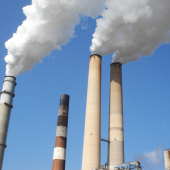
Abstract: A challenge with engaging students in taking action to address the climate crisis is that they may assume that they have little or no agency related to having an impact on audiences or policymakers. In this report, we describe students’ use of videos and digital storytelling as multimodal tools for communicating the need to address the climate crisis with different audiences. We discuss the importance of narratives in digital storytelling as a means to foster student engagement with issues of sustainability, as well as provide an overview of different types of digital multimodal productions students can create to promote a sense of agency. Next, we describe one program in-depth (Project IF) and explain how the similar use of digital tools promotes creative problem solving and leveraging media to explore climate issues. We conclude with a discussion of the critical media literacy practices associated with the effective use of digital tools for addressing the climate crisis.
Continue Reading
Abstract: The shift away from coal to renewable energy for electricity generation is producing environmental benefits during the climate crisis but also poses uncertainty for coal producers and others along the coal supply chain. Media representations of the coal debate shape how citizens understand and respond to it. This commentary exposes how audiences – even of pro-environmental media – reproduce dominant discourses promoted by fossil fuel corporations and reconceptualize those discourses into a Not in my Backyard (NIMBY) worldview. Critical discourse analysis helps to reveal how tensions between coal companies and renewable energy proponents are exacerbated by controlled coal messaging. Coal propaganda evokes images of a noble and reasonable energy source and places coal within a positive framework that enhances local knowledge, protection, and economic security. Conclusions point to the importance of media literacy instruction as a means for consumers to gain critical distancing strategies and broader perspectives about the climate crisis.
Continue Reading